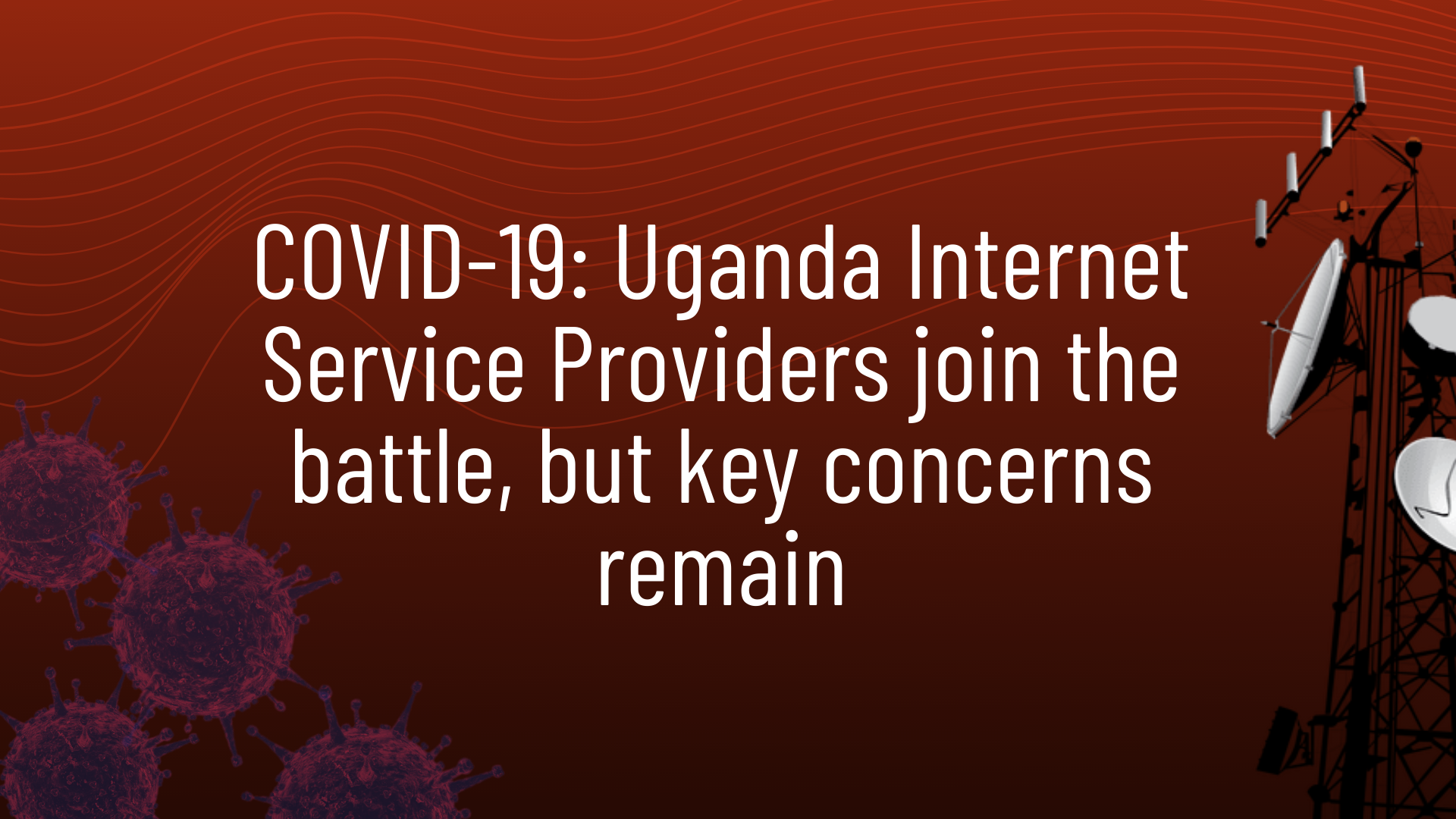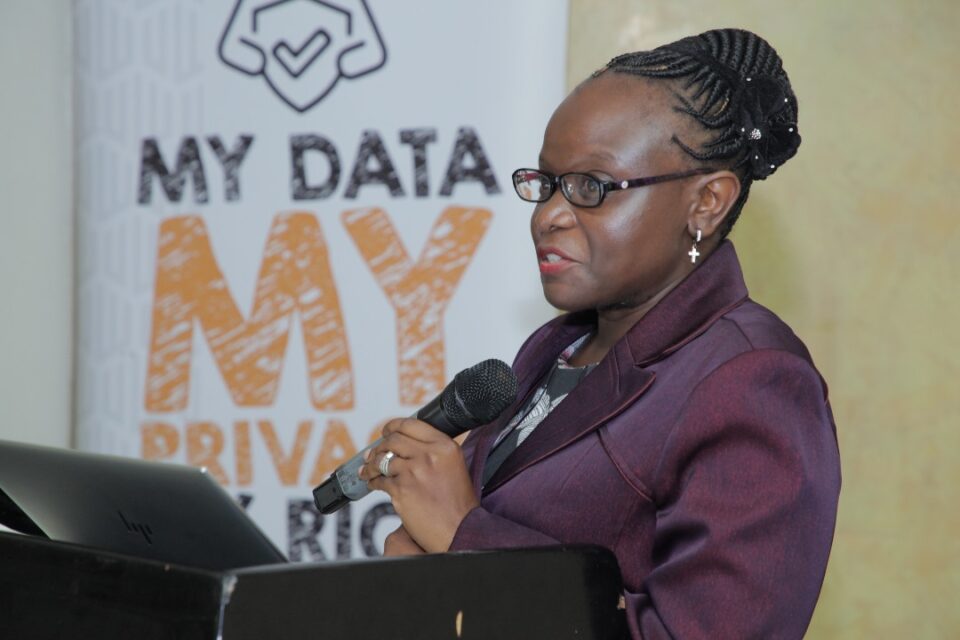COVID-19: Uganda Internet Service Providers join the battle, but key concerns remain

By Lawrence Muyomba
At least by April 2, 180 countries globally have confirmed cases of the novel coronavirus since it emerged in the central Chinese city of Wuhan in late December last year. The number of countries and infections keeps changing rapidly, which has forced the World Health Organization to declare COVID-19 a pandemic.
Similarly, different countries have responded by taking different unprecedented measures to prevent or slow down the spread of coronavirus. Some of these measures are extreme, as documented by Privacy International’s global network of activists.
Over 100 Civil Society Organizations globally, including Unwanted Witness Uganda, have issued a joint statement calling upon governments to apply human rights law as they employ surveillance technologies during the pandemic.
Uganda confirmed the first case of COVID-19 on March 21, 2020, at Entebbe International Airport. Responding to this health emergency president Yoweri Museveni has tightened preventative measures including prohibiting entry and exit of passengers either by air, road or water, on top of encouraging hand washing and sanitizing, social distancing and working from home. To date, the country has registered over 44 cases with additional restrictions on domestic movements, a ban on gatherings of more than 5 people and a 14-days curfew throughout the country starting from 7 pm to 6:30 am.
As a result of these restrictions, there has been a rapid shift in the use of different digital platforms by citizens to access information, work remotely, order for services and connect with family and loved ones.
Journalists too are encouraging the public to use the digital tools to practice citizen journalism with the hope of complementing the strained sector during these extraordinary times, while daily publications are enabling information access through the provision of free online papers for a specified period.
For emergency response, the Ministry of Health designated call centers to aid the public in reporting any suspected person with signs and symptoms of coronavirus.
Internet Service Providers react.
Public-private partnerships between ISPs and government agencies have been swiftly established with Toll-free lines to ease communication and provide better-coordinated emergency response. Major Telecommunication companies have automated coronavirus prevention messages as ringtones and periodically send unsolicited pandemic control text messages to their customers.
Different service providers have further introduced data packages as incentives to their customers during the pandemic.
MTN- Uganda introduced “work from home“ data bundle, operating from 9 am to 5 pm working hours at a cost of 2,000 Uganda shillings. The move is to enable its customers to conduct business while they are at home.
The company has also suspended charges on Mobile Money transactions of up to 30,000 Uganda shillings for 30 days.
Airtel Uganda partnered with a number of websites to provide free access to health tips, included free access to the Ministry of Health and World Health organization website, while MTN enables its customers to access World Health Organization website without data.
The scramble to fill the education gap is also evident as institutions of learning were closed and children sent back home, both Airtel and MTN have introduced a package on homeschooling free of charge. MTN Uganda provides free access to 17 learning sites dubbed learn from home, without internet connectivity.
Key Concerns.
The coronavirus pandemic has amplified the importance of the internet in health emergency as well as facilitating human rights. But despite efforts by different ISPs in trying to provide short term incentives to customers as a response to the coronavirus pandemic, key challenges remain and need to be considered for both immediate and future lessons to shape internet landscape in the country, including access and affordability.
This crisis has made it clear that social media tax unreasonably limits people’s access to vital information and should be suspended until the pandemic is over. Access to information during a health emergency is critical to saving lives and the desired behavioral change. Similar concerns were articulated by the speaker of the parliament of Uganda, Rebecca Kadaga. Various social media platforms, which are avenues to receive feedback on people’s perceptions and attitudes, providing room for correcting any misinformation.
While sending unsolicited random text messages to customers is meant to raise awareness about the pandemic, we are concerned that since it’s conducted without a known official guideline, which is likely to escalate beyond the crisis unabated.
Towards the end of last week, the government of Uganda publicly announced intentions of collaborating with different telecommunication companies to use mobile phones to track location of over 2000 suspected coronavirus contacts. Whereas the planned phone tracking is meant to contain a health crisis, however, it’s essential for the government to apply human rights law and ensure that different rights are balanced to protect individuals and wider society.
Government and companies must respect their obligations to protect people and their data by ensuring that measures adopted to contain the pandemic are lawful, necessary and proportionate.




